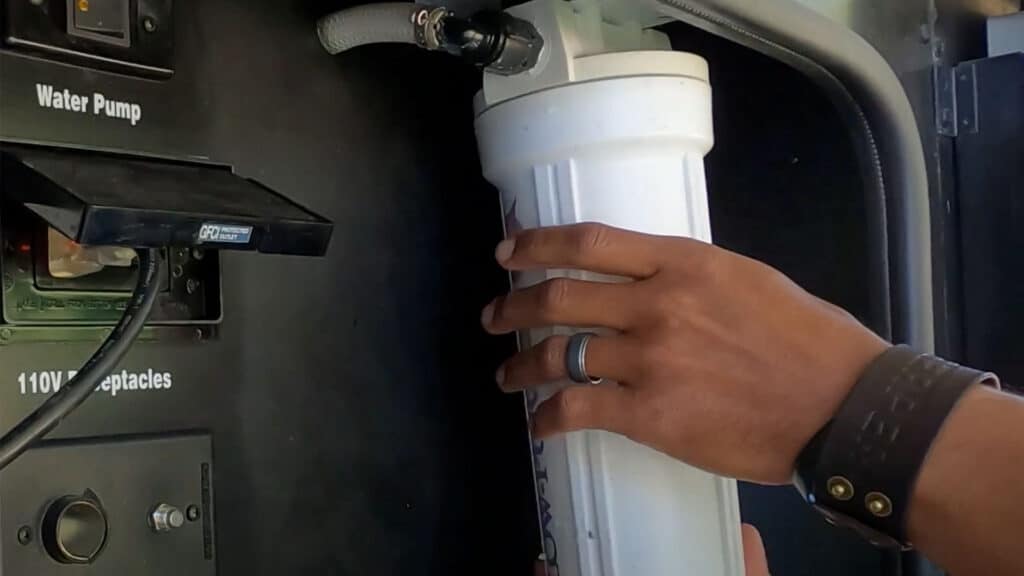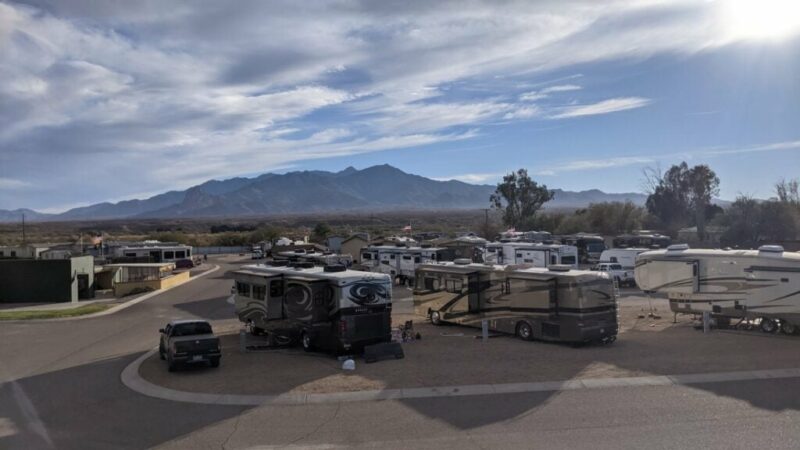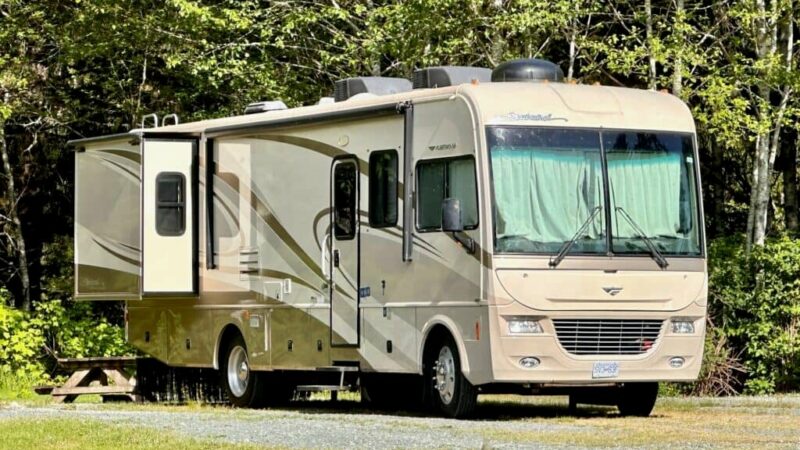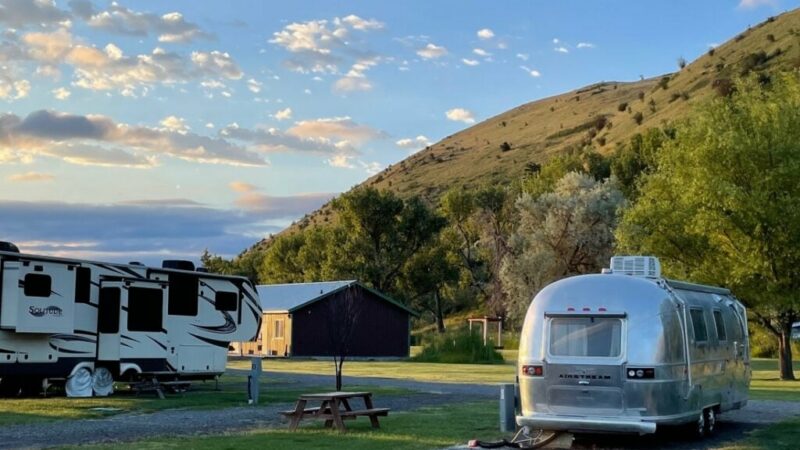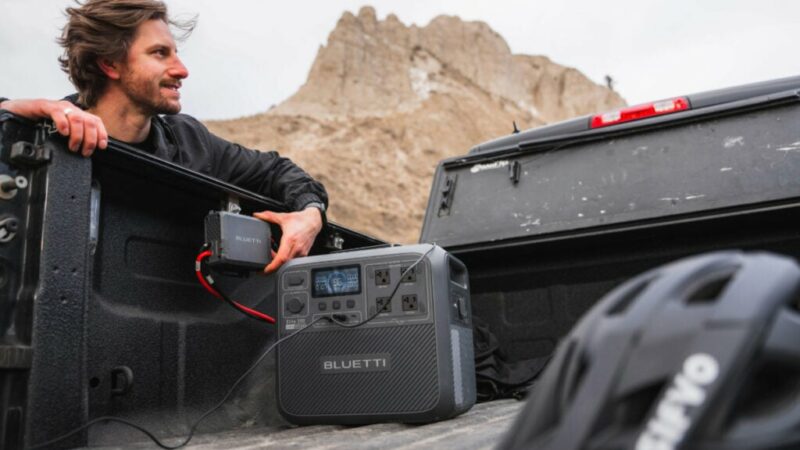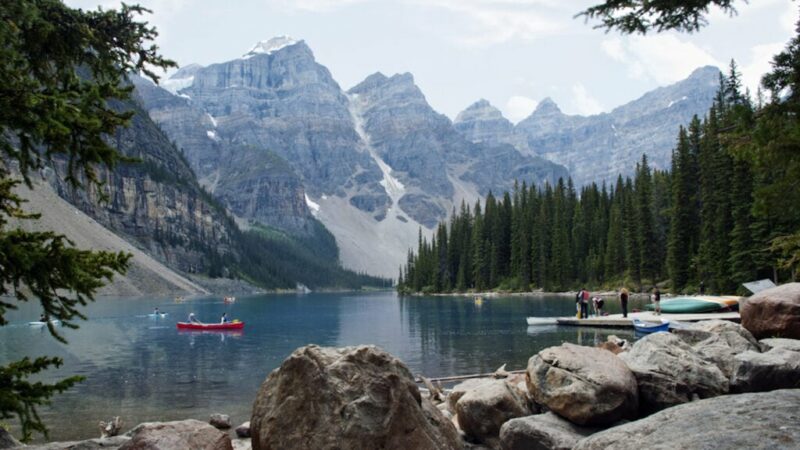RV Water Filters Explained
RV water filters might not be the most exciting topic when it comes to RVing. However, it certainly is an important one. It’s important to understand what water filters do, how they work, and why you need them to keep you and your RV safe!
What Are RV Water Filters?
We all need water, but many take it for granted. Open the tap at home and safe drinking water fills your glass, cooking pot, and coffee maker.
Most municipalities treat and ensure the safety of drinking water. Some people still choose to add filters to eliminate the bad taste that can come with treated water. However, the water is filtered and safe for drinking straight out of the tap.
When RVing, access to treated water isn’t always the case. This can result in water that’s unsafe for drinking and can cause issues with your RV.
The easy solution is adding an RV water filter to your RV water-supply system. Just like you may have a filter in your home at the main water supply or under your sink, the setup is similar for RVs.
RV water filters add a level of protection through the filtration of incoming water. They are an easy DIY add-on to any RV.
Canister-style round filters enclosed in a plastic housing direct water through the filter (or filters in some cases), and into the RV water lines. The most common installation location is between the water-supply hookup and the inlet for the water supply into your RV.
How Do Water Filters Work?
In most cases, you attach the filter to your water supply hose since your RV doesn’t have a hard-plumbed water supply. Canister-style round filters enclosed in a plastic housing direct water through the filter (or filters in some cases), and into your RV’s water lines.
The good news is it’s super simple and won’t add much time to your normal setup routine.
A filter by definition is a porous device for removing impurities or solid particles from a liquid or gas passed through it. In most cases, you attach the filter to your water supply hose since your RV doesn’t have a hard-plumbed water supply. Producing “soft water” is another benefit that we’ll look at closer in a minute.
You should check what is and isn’t filtered for your application because not all filters are the same.
The inner workings of RV water filters for the most part can only really be seen on a microscopic level. This isn’t Popular Science magazine, so we’ll make it simple.
Water filters stop sediment simply by having pores so small the sediment can’t fit through. Carbon filters are most often used for chlorine, other chemicals, and heavy minerals. They essentially absorb any contaminants and odors as the water passes through.
Removing things such as calcium, magnesium, and fluoride isn’t a strong point for entry-level water filters. This is more the job of reverse-osmosis systems and water softeners. That being said, water filters can lessen the effects of hard water on your RV’s plumbing system to some degree.
Soft Water Versus Hard Water
Hard and soft seem like strange words to describe water. However, those terms are accurate and you’ve likely heard them before.
Hard water has a higher concentration of heavy minerals such as calcium and magnesium. As a result, these minerals can build up and cause issues with water lines and plumbing fixtures.
Soft water, on the other hand, has fewer of these problematic minerals. In general, softer water is going to be better for your RV. However, some people find water that is too soft leaves hair and skin with a film-like feel. Water that is too soft generally isn’t going to be an issue in RVs as the water filters are not going to eliminate everything.
How Difficult is Installation?
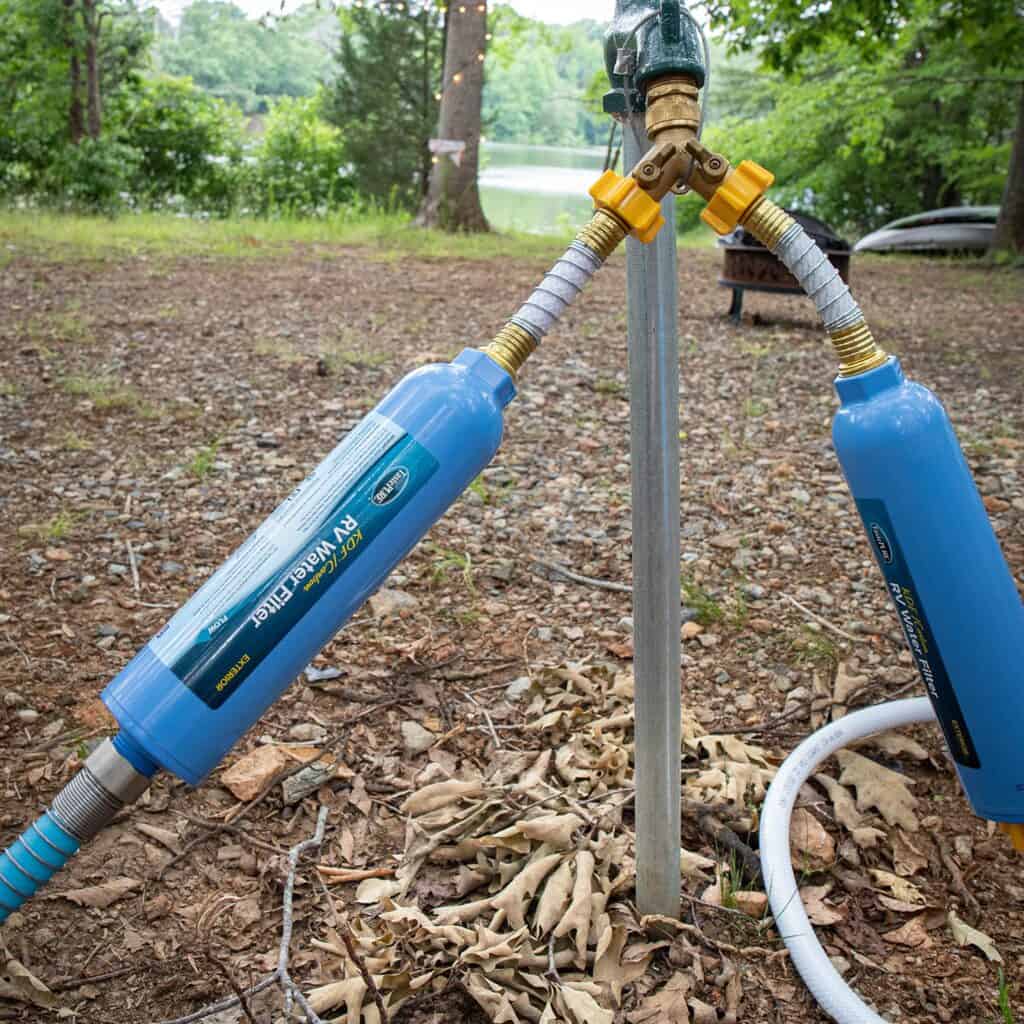
Installing a water filter on your RV isn’t something you’ll need to book an appointment for. In fact, it’s something you will be doing yourself each time you set up your RV.
Installation in most cases is going to be as easy as attaching the water hose to the filter assembly, checking for leaks, and that’s it!
You might be wondering where the water filter goes on your RV. It’s actually not going to be installed on the RV, but rather it’s attached in line with the water-supply hose and water-pressure regulator.
A typical setup looks like this:
- The water-pressure regulator is attached to the water supply (campground pedestal).
- The RV water hose is connected to the water-pressure regulator.
- The RV water filter is connected to the RV water hose before connection to the RV.
- The RV water hose is connected between the filter and external water hookup on the RV.
In the case of multiple filter systems, a stand that holds the two or three filters will be on the ground, near the RV. The hookups will be the same.
Undercounter filters are not commonly used in RVs. The reason for this is that you would only be filtering and protecting that one faucet. RV manufacturers run separate water lines throughout RVs, so installing a filter before the water enters the RV protects everything. That said, some people do use an additional filter for the galley tap for additional protection.
How Much Are RV Water Filters?
More good news! RV water filters are pretty cheap. You also have to consider that you’re extending the life of the plumbing system and components such as faucets.
A standard single filter system can be found at any RV store or online for around $20–$30. That’s cheap insurance for your RV and well worth having fresh drinking water.
If you choose to go all out and invest in a multi-filter system with filtration for viruses and bacteria you can spend as much as $500. If you’re a full-timer this is probably money well spent. For the weekend warriors and part-time RVers, single filters tend to work just fine.
Do You Really Need a Water Filter for Your RV?
In my opinion, RV water filters are on the must-have list, along with a water-pressure regulator and a drinking-safe water hose. The cost is limited, the hook-up is simple, and you and your RV are protected from anything nasty that could be in the water supply.
If you’re a boondocker or spend your time without pedestal services, having an external water filter isn’t going to be of use to you. Ensuring you fill your RV tanks with clean water as well as adding water treatments and keeping your RV’s tanks clean are critical.
You have the option of running the water through filters while filling the tank or installing a filter at your faucets if you want to be extra careful. Along with using safe water, we should all try to manage water usage while RVing. We all need safe water—and a water filter is the best way to ensure that’s exactly what you’re getting.
The post RV Water Filters Explained appeared first on RV LIFE.

